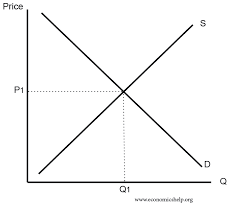I'm toying with the idea for a world where instead of minting coins out of valuable metals all countries us mana, the 'fuel' of magic, as a currency itself. Since mana always has value, in it's ability to be used to cast valuable spells, and is highly portable and exchangeable it turns out to be a more convenient means of exchanging wealth.
In this world a person can be charged with mana and walk around with their money reserve basically within their body. If they want to buy an item with 100 units of mana they can touch someone (or something?) to transfer mana until they have transferred 100 units worth.
While people usually prefer to carry their personal mana reserve internally a human can only hold a certain quantity of mana, say the rough equivalent to a few hundred US dollars worth of wealth, before it becomes uncomfortable. For carrying larger quantities of mana an individual can store the excess mana in an item designed to hold a certain charge of mana; I haven't yet committed to what type of item's can store mana or how they are made. This also means it's possible to have organizations with large mana reserves locked in a vault or otherwise better secured then trusting one person to carry around all the companies mana personally.
There are a number of questions I have about how such a mana economy would work, including questions of inflation, what should happen to mana when a person who has some dies, how volatile a market it may be to tie currency to the need to cast spells etc. I will ask about those issues in later questions.
For now I want to focus on a more straightforward one, how does one define a 'unit' of mana such that transfers of mana can be standardized. Ie how do I know that the person who bought a 100 mana item from me has transferred exactly 100 units of mana to me, and not 99 or 101 without either side bickering over how much mana they feel was transferred?
I'd prefer a standardization method that is quick enough to make transfers of mana easy and quick when transferring personal mana, ie even if I'm transferring hundreds of units of mana at a time I shouldn't have to painstakingly count every unit. This method should be consistent enough that I'm unlikely to get into an argument about how large a unit of mana is even if I travel to a different country with different rules and economic practices. Similarly I shouldn't have to worry about the possibility that a crooked peddler has rigged a mana counting tool to under count how many units I just payed him.
How can I structure how magic and mana works to ensure that mana will prove more convenient then coins as a basic unit of currency?

